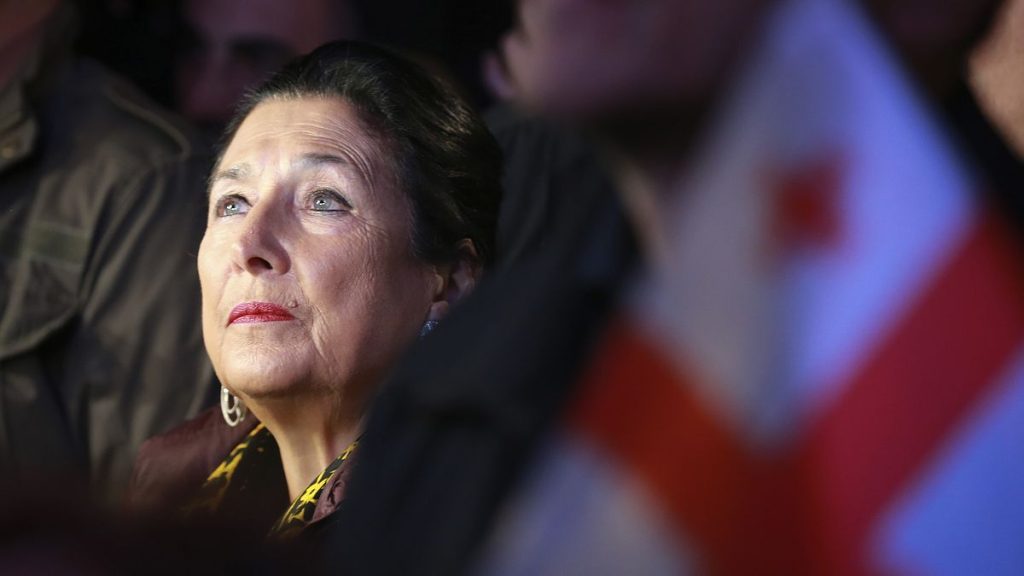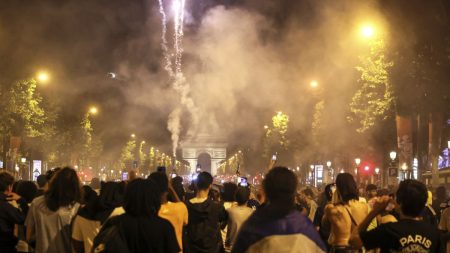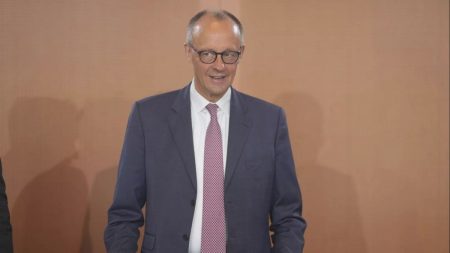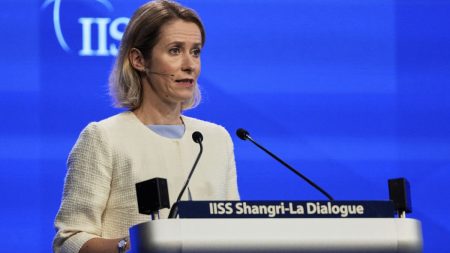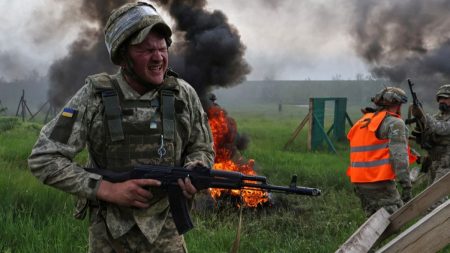In an interview with Euronews, Salome Zourabichvili, Georgia’s first female president, expressed her disapproval of the current government led by the Georgian Dream party, which has been accused of being pro-Russian. Since her inauguration in 2018, Zourabichvili has advocated for a pro-Western stance, envisioning Georgia’s future within the European Union. This political view has led to significant tensions with Georgian Dream, which critics contend has engaged in corrupt electoral practices that undermine democracy. The legitimacy of the current parliament has been called into question after recent elections, prompting accusations of voter intimidation, bribery, and Russian interference in the political process, culminating in a boycott by opposition parties and a refusal by the EU to recognize the election results.
According to Zourabichvili, the Georgian Dream government cannot be deemed legitimate, as evidenced by the widespread lack of recognition from both the public and opposition forces. With the European Parliament echoing this sentiment and demanding a fresh election, the president noted that the government’s recent decision to pivot away from the EU towards Russia has fueled an unprecedented wave of protests across the nation. Citizens are expressing their dissatisfaction with the current political climate, and there is a growing dissent within public institutions, as many government employees resign or protest against the government’s choices. Zourabichvili argues that this unrest reflects the population’s desire for a legitimate government aligned with European ideals, as they demand new elections to restore democratic integrity.
Zourabichvili emphasizes the necessity of European support in facilitating this transition toward renewed elections. She describes the protests as being indicative of a broader national movement seeking stability and a restoration of Georgia’s European trajectory. Zourabichvili identifies herself as the sole independent constitutional authority until a legitimate parliament can establish a new president, and she underscores the importance of maintaining a stable transition to heal the discontent in society. She highlights that simultaneous protests across various Georgian cities are unprecedented, signifying a nationwide demand for change, and businesses that typically align with any regime are now advocating for a return to European partnerships.
The interview also delves into the justice system and security forces within Georgia. Zourabichvili points out the long-standing issues with the country’s lack of an independent judiciary, which has been a point of contention with the European Union. She has initiated legal actions in response to the electoral verdicts and stresses the importance of addressing these injustices in a constitutional manner. Additionally, she draws a distinction between regular police forces, which align with citizen interests, and the “robocops,” who operate as a tool of the state. The military, she posits, has been supportive of pro-Western initiatives, having been trained and equipped in alignment with NATO standards, thus remaining quietly steadfast during this turbulent time.
Drawing parallels between the current situation in Georgia and the Euromaidan protests in Ukraine, Zourabichvili acknowledges some commonalities, particularly regarding the shared adversarial stance towards Russian influence. However, she insists that the Georgian context is unique, with the character of the Georgian population and the current erosion of state institutions contributing to a distinctly different set of dynamics. The ongoing unrest has resulted in voices of dissent vibrantly emerging within the church and other social institutions, indicating significant shifts within Georgian society. Zourabichvili frames the current standoff with the Georgian Dream regime as part of a broader geopolitical contest, wherein Russia relies on manipulating electoral processes to extend its influence in the region.
Ultimately, Zourabichvili urges the European Union to recognize and respond to Russia’s systematic attempts to undermine national sovereignty across Eastern Europe. She argues that countries like Romania and Moldova are also experiencing unique forms of hybrid warfare from Russia, each tailored to exploit specific national contexts. Despite these challenges, she expresses a resolute belief in Georgia’s resilience against external pressures. Zourabichvili remains optimistic about the potential for restoring democratic processes in Georgia and emphasizes the enduring will of the Georgian people to move towards a future firmly aligned with European integration and democratic values, reflecting their long-standing desire for self-determination in the face of geopolitical adversity.




